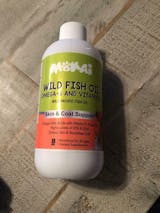Degenerative joint conditions in dogs, also known as DJD, are the progressive inflammation and degeneration of the cartilages, tissues, and joints. It is a non-infectious condition that affects mostly senior dogs. The most common DJD in dogs are arthritis and osteoarthritis.
Dog joints and cartilage
Joint cartilage is usually smooth and consists of water, collagen, and cartilage cells. Healthy joint cartilage allows our dogs to walk, run, jump, and move smoothly, without feeling any pain and preventing bones from rubbing against each other.
DJD usually comes with age, but it can also be a result of an accident, injury, a hereditary condition, or obesity. Thus, larger breeds are more prone to develop arthritis than small breeds.
Arthritis vs osteoarthritis
While arthritis is the medical term that refers to any inflammation of the joints, osteoarthritis is a type of arthritis, and it takes place when there is a chronic inflammation of the joints caused by the deterioration of the cartilage.
'DJD consists mainly of loss and deterioration of the cartilage protecting the joint.'
Degenerative joint diseases in dogs
As time goes by, and dogs age, it is more common to notice their body movement is not as fluid as it used to be. There is a point in which calling your old friend and expecting him to come running turns into a utopia. However, it’s important to differentiate the signs of aging from the signs of a degenerative joint condition. Based on a 77.2 million dogs’ study, currently, in the USA, 1 out of 4 dogs are diagnosed with some form of arthritis.
Signs of degenerative joint conditions in dogs
- Lethargy or increased sleeping
- Stiffness or lameness
- Reluctance to move
- Involuntary urinating and defecating while walking
- Yelping when touched
- Difficulty to get up after a long rest period
'Based on an 80 million dogs’ study, currently, in the USA, 1 out of 4 dogs are diagnosed with some form of arthritis.'

How to prevent them: maintaining healthy joint cartilage
As we have previously mentioned, degenerative joint conditions in dogs can occur as a result of different situations like accidents, being overweight, or age. In most cases (e.g. in old dogs) these conditions can’t be prevented. However, as in many other conditions, the care we provide to our dogs is super important and can make a difference. Dogs need to carry balanced diets that include all the required nutrients, proper exercise, and supplementation if needed.
Treatment
Most of the damage caused by degenerative joint conditions in dogs can’t be reversed. However, you can ease your pup’s pain and make him feel more comfortable. And a good treatment can make a significant difference in your dog’s quality of life.
-
Physical therapy: It can help your dog feel less pain, strengthen his cartilages, and improve his movement. Naturally, it needs to be recommended and performed by a professional. Besides, there are alternative therapies like canine sports, acupuncture, and chiropractic care that report good results.
-
Supplements: Supplementing your dog with glucosamine can stimulate the production of Glycosaminoglycan (an essential group of amino acids). Glucosamine promotes healthy cartilage and has anti-inflammatory effects that alleviate symptoms from arthritis and osteoarthritis, and will lubricate his joints to make your dog’s movements soother. Mokai’s Advanced Hemp Mobility reduces pain and inflammation and helps to build fluids surrounding the joints.
-
Balanced low-calorie diet: If your dog suffers from degenerative joint conditions, it’s super important to beware of his weight, since obesity can seriously worsen his condition. Make sure to include all the nutrients and vitamins he needs in a low-calorie diet.
- Prescribed meds: Some severe cases of DJD can require the use of prescribed meds. NSAIDs (non-steroidal anti-inflammatory drugs) are used for pain and inflammation management. However, please take into account that these meds depend on your dog’s age, condition, and overall health. Besides, they must be prescribed by a vet who knows your dog and his medical history since they can have different side effects.
















